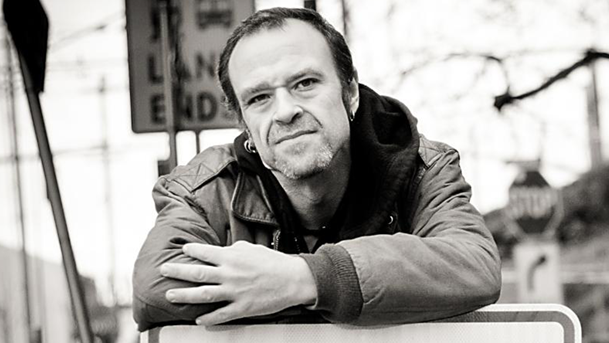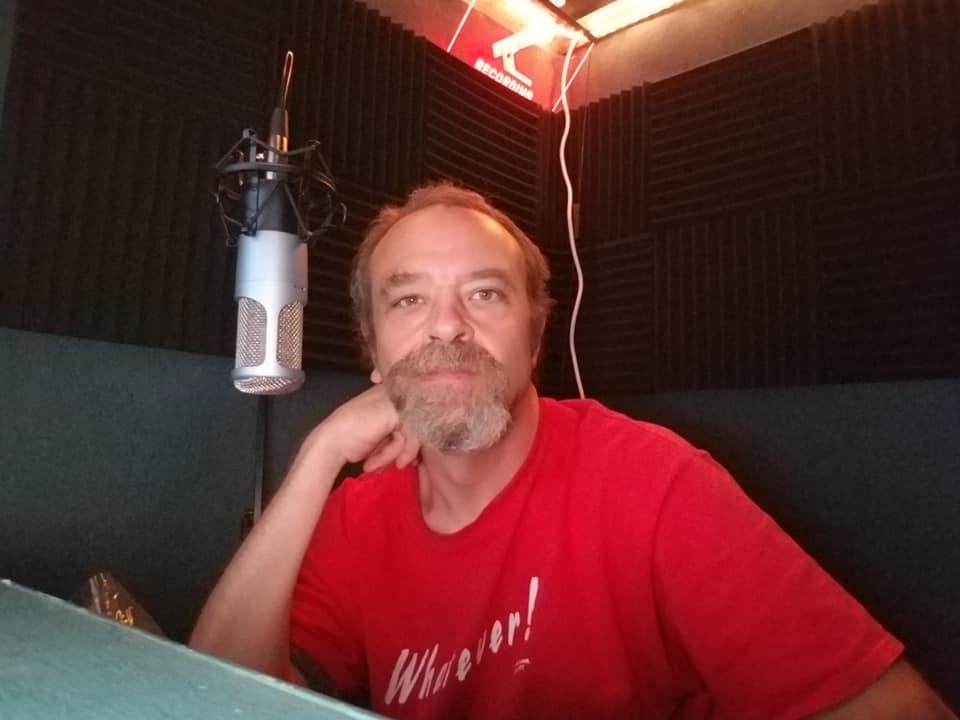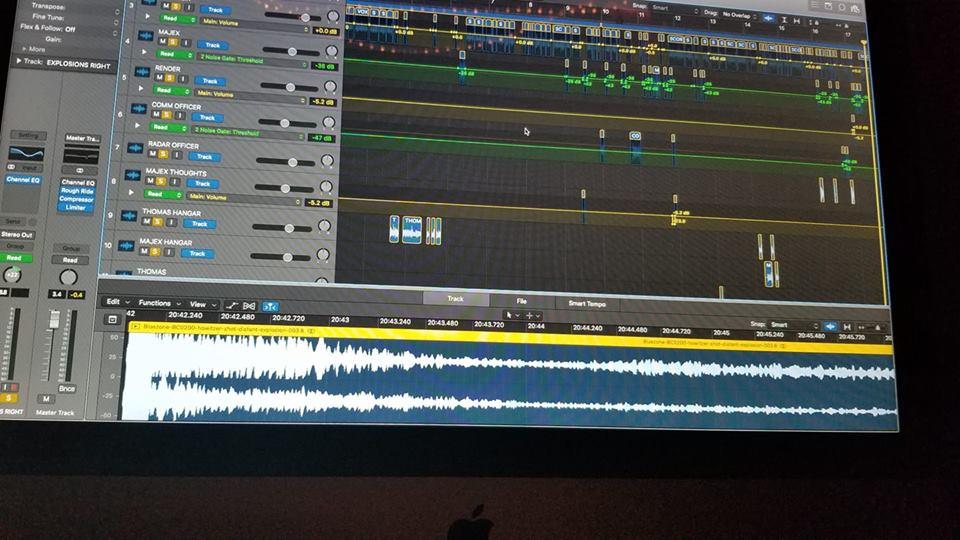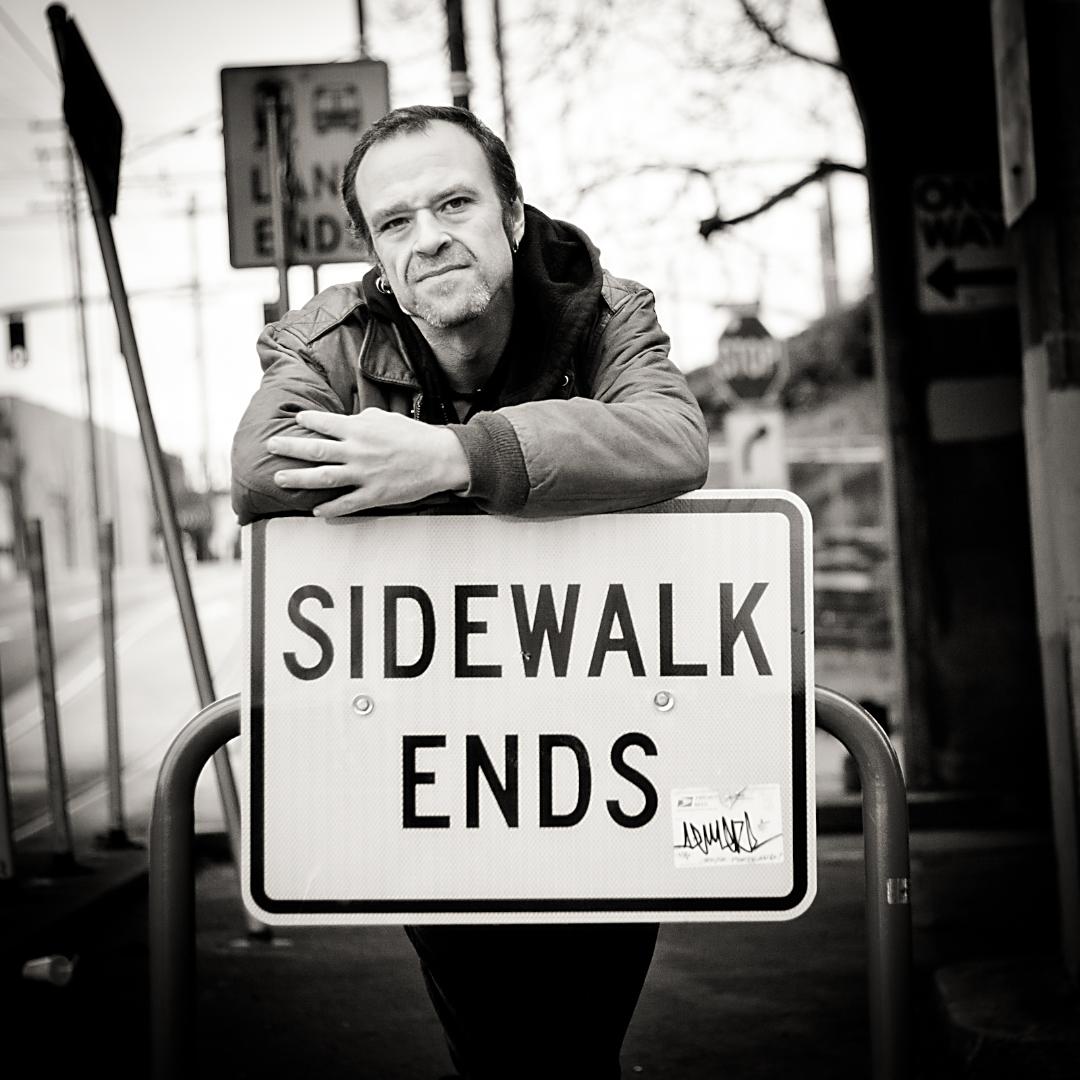Intro: Howdy everyone! We’ve got a cool bonus for you today. During our interview process with Kyle Mata, we came across the awesome opportunity to speak with the narrator of Scorpion: The Rae Wars, Andrew Scott. Mata was very proud of the work that Scott put into the book, and it’s easy to see hear why! Check out our mini-interview with Andrew Scott and head over to the links we include for a hint of the voice actor’s great work, including a sneak peek at Scorpion: The Rae Wars!
Tellest: Hi there Andrew. Thanks for joining us today. Let’s start off with a bit of a cross over from Kyle Mata’s interview. How did you two end up collaborating on the Scorpion: The Rae Wars audiobook?
Andrew Scott: Thanks for having me! So, I found out about Scorpion: The Rae Wars through an independent contractor hiring site that many professional voiceover providers use for finding work. I began discussing the project with the publishing rep, Evan Fay, and pretty quickly, I knew I wanted to work on it, because I knew I could give it the sonic treatment it really needed and deserved. Kyle’s done a great job building a very diverse, rich Universe. He’s a solid world-builder, and that really insisted on a storytelling vehicle that brought people into his Universe, not merely dumped it in front of them or told them about it. So I did a treatment of the first chapter in the way *I* felt it could be, and we were off to the races. Now I’m busy pulling out what little hair I have left to get it done and out there for people!
T: People who’ve never listened to an audiobook—and even a great deal of people who have—are probably unprepared for your work on this book. It really makes you feel like you’re part of it. There are atmospheric effects, voice changes; the whole thing feels very cinematic. How did you end up deciding to crank things up to eleven with this?
AS: Yes, Nigel, OUR AUDIOBOOK GOES TO ELEVEN! (although no little people were harmed in the making of this audiobook. Actually, check that: there are plenty of casualties of all sizes in this story!) Anyway, as a 30+ year sound engineer and audio producer, my goal is to bring people something they HAVEN’T experienced before. Double that emotion because I’m a life-long sci-fi geek.
How cranky have any of us been listening to a sci-fi audiobook, saying to ourselves “Yeah, this story is good, but man, I wish there was…MORE to this.” Audiobooks as straight narration are all fine and good, and plenty of them would actually be DIS-served by a larger sonic treatment (I mean, do you really want the sound effects of a romance novel? NOT my gig!). Too much sonic treatment in a “straight” story could easily be distracting or get in the way, but classic “space opera”? C’mon. It kinda screams “Produce me!! Bring me to LIFE.”
As a producer, I get off on that. It is a balancing act, though. Too much can get in the way of the story, or as I said, be distracting. Not every action needs a sound effect, and some scenes are mostly just atmospherics and “scene-setting”, but when you have a battle, or mechanics, or even a treatment that can make a character’s voice seem distant, yet drawing closer with each step? Having that happen in your ears really opens up the experience to be more than just someone reading a story to you. And as both a life-long story-teller and an audio engineer, that kind of production excites me.
T: I’ve done a little digging, and I also found another audiobook sample that you did for Mark Owens’s story, which I believe is a foreword for Back in Control. Was setting that up similar to getting to work with Mata?
AS: HA! How did you stumble upon that? Yes, I did an audition for that title (the publishers passed on it). I actually liked that treatment quite a bit, as I thought it broadened the experience just a little bit without being too obtrusive.
My main M.O. is to put people INTO the story, not merely read it to them (although I do plenty of that as well). Though they’ve been around in one form or another for over 40+ years, I look at audiobooks as a whole new medium, and if I’m honest, it’s been underserving its audience for quite a while now (Amazon/Audible actually discourages use of sound effects, which I think is utter madness, and very short-sighted).
We have the ability to paint in a way that even film can’t. It’s the best of all worlds: it leaves your imagination intact and gives it license to visualize, while at the same time, it allows the audio artist/producer to use sensorial cues, atmospherics, and effects to broaden the entire experience. If done well, who doesn’t want that?
T: I like to think that I’m a master of stumbling across things on the internet. I am a self-described repository of useless information, but at least in this case, I’m stumbling onto interesting things that other authors (and fans of the genres) can find helpful.
Speaking of which, you’re a founder of Feather in Cap Voiceovers, a solo artist, of course, and audiobooks don’t appear to be the only thing you do. You’ve been pretty busy from what it seems. What are some of the other things that you do?
AS: I’m soup-to-nuts as far as voicework and audio goes. Everything from national commercials and PSA’s, to on-line language learning, to IVR/Voicemail systems. Lately, I’ve been doing a lot of voicework in the on-line ESL/TESOL realm. If it can be voiced, I can do it.
It still weirds me out a bit when I think of all the places my voice can be heard: Call for a private jet at 2am? You get my voice. Searching for info on emigrating to Canada (and who isn’t?) Yup. That’s my voice on the video. Podcast intros? About two dozen are me. Guy crushing your Pandora groove trying to get you to go to a local burger joint? Voice on the phone of an interactive art installation in New York. Shopping-cart sanitizer-wipes from a kiosk in Atlanta. Restaurant and hospitality services training in South Africa. English language learning in Spain. The list is pretty vast.
My bigger jobs are for a few very large concerns, most notably the Christopher & Dana Reeve Foundation. I’ve done quite a bit of work for them over the years.
One of the other caps I wear is that of a long-time EDM/trance DJ and producer, and so I do also dabble in licensed production music. There’s actually a couple of scenes in Scorpion: The Rae Wars that have music in them that I wrote specifically for the scene.
Feather In Cap MultiMedia Services is the umbrella organization that my partner Evett and I operate together. I got her doing voicework a bit ago when I needed a female voice for a “conversational” language training project I was working on, and she hasn’t stopped. She’s also a gifted voice talent in her own right. So it’s turned into a larger business, and we’re gearing up to offer our own voice casting services as well. I have quite a cadre of performers and actors in the little Pacific NorthWet bubble I live in, and it’s always handy to have people in your pocket, instead of trying to find a talent last minute for a project that needed to be done yesterday. Feather In Cap is still in the build-out stage right now, mostly because I’ve been so busy trying to complete Scorpion: The Rae Wars, I haven’t had time to website build!
T: When you listen to The Rae Wars and you listen to Mark Owens’s story, you can tell you’re not a one-trick pony (pun perhaps intended). In Mata’s audiobook, you hear klaxons and smoke hisses and very science fiction-heavy noises, whereas in this other book, you hear more ambient, atmospheric sounds, along with the horse noises, of course. How do you manage to put these all together across different genres? Do you just have a suite of foley sounds available to you in case you run across these things?
AS: PUN ACCEPTED!
It’s a combo of things. A lot of what I do time-wise is hunting free sounds on the interwebs. There’s a huge resource there that—if you’re not careful—you can literally get lost in trying to find the perfect “plink”, “beep” or “boom!” effect. It is very, very time-intensive. But there’s wisdom in not trying to reinvent a wheel that someone has already made that works just fine, so if it’s available, and (legitimately) royalty-free (meaning you don’t need to license its use for broadcast), and not just stolen from a video game or movie, then I often use that under CC0, or “Creative Commons License ‘0’” (aka: “Public Domain”).
I do have quite a library of purchased and licensed effects from a number of sound-houses that are also used. Having said all that, though, I personally feel as a producer that at least SOME of what I provide must be custom foley or effects, or else you run the risk of suffering from what I refer to as “Wilhelm’s Curse” in honor of the (in)famous “Wilhelm’s Scream”—aka—the use of too many iconic or instantly recognizable (read: “tired”) audio effects that immediately make the listener go “Uhhhh… really? That old thing again? Wasn’t that the sound of a rabid undead baboon in your last story? You’re not even trying, are you?” That can really push the listener right out of a good immersive experience, and annoy them, and that’s something I really try and avoid like the plague. So, I do do quite a bit of foley myself.
I’ll clue you into one in Scorpion: The Rae Wars that is kinda funny: when our hero depressurizes or repressurizes his face-mask, that’s a can of energy drink being opened, combined with the click of a lighter, plus me going “PwwwoooSSSSSHHHHP!!” into one of my condenser mics, dosed with proprietary reverb, a few other post-prod effects, plus secret herbs and spices. In a few other places, you hear me punching the wall of my sound booth, or blowing into my mic, or any number of other crazy things.
Soak it in enough reverb and secret spices, and I can normally make anything sound like anything else I need it to! That’s both the fun, and the art of it, and that’s why I love what I do so much. Well, that, and I can work in my underwear. Did I just blow the magic with that?
T: If anything, I think you just made the whole thing more magical!
AS: Truth. My underwear is indeed magical. I have to roll a natural 20 with no modifiers just to get IN them. That says nothing of the lasers…
T: Alright, so one more question: Audio work strikes me as the kind of thing that takes a lot of work to get done right. Even with a “regular” audiobook where it’s just straight narration and maybe a few voice changes to evoke different characters, the hours the audio guy is spending working on it is so much different than the final production. For you, doing sonic work in addition to regular narration, how long does it take to produce a typical novel?
AS: Well, the industry has established that the most comfortable narration pace for listeners is 150 words per-minute (give or take), so as far as “straight” narration goes, you can pretty safely calculate a title with a simple formula: {Word-count} / {150wpm} / {60m} = what we in the business call “TFH” or “Total Finished Hours”–aka–the full run-time of the finished audiobook. Take that result, multiply it by 2.5, and you get the time (in hours) it takes to produce an average “straight” narration audiobook title. So, let’s say a book has 100,000 words front-to-back. It’d be {100,000} / {150} / {60} = 11TFH, so it’d take me roughly 28 hours to produce.
But Scorpion: The Rae Wars was a completely different beast, with many, many heads. And those heads had lasers firing out of them, from aliens that really don’t like us, wanting to destroy us in huge epic space battles where massive tungsten slugs punch through energy fields, and cats and crocodiles talk, and oh, that machine goes “ping!”, and…you get me.
To be both honest with you all, and fair to both Kyle and his publisher Evan, this project took me totally by surprise, and my groovy little formula was about as useless as a Casio calculator watch would be if you were trying to solve Woodin’s Ω-hypothesis. It all went straight out the damn window. As we talk, I’m finishing the last two chapters. Then a few days (hopefully) of mix-down and mastering, getting levels even and uniform, and everything mixed down to industry standards. The book looks to run roughly 6 finished hours. My formula says 15 hours to produce. In the real world? My job tracker just ticked over 300 hours this morning at about 4am. For the last three weeks to a month, I’ve been putting in 10-hour days, six days a week, trying to get it finished. But it has to be this way. We want this to be something that is unique. Fresh. Something that is more than just someone reading to you. Even though the only voice you hear is mine, we want it to be a broad, rich, deeply immersive experience. And I set the tone early on by what did and did not get a sonic treatment. That pace, that treatment, that rubric needed to be upheld. You wouldn’t want one chapter or segment of the story-telling to be rich, then the following “meh” simply because I needed to push this thing out. It would be a disservice to Scorpion: The Rae Wars, to Kyle’s writing, and to the listeners. So, let’s wrap this interview up, ’cause I got work to do, aliens to make babble, and a space battle to finish!
T: Ha! Alright, well we do have one last question for you. We mentioned earlier that you do a lot. If someone needed to get a hold of you, where could they find you out in the vast internet landscape?
AS: You can always drop into my website: WWW.AS-VOA.COM. Most of my relevant contact info is there, and there will be cross-links to Feather In Cap there soon. Also, I have profiles on most of the major voice casting sites like ACX, Voices.com, and Voice123 as well.
We want to thank Andrew Scott for pulling back the curtain somewhat and showing us what it takes to make some of the most explosive audio content there is. This was definitely a cool experience. Speaking of which, we have a sample of Scott’s work—a sneak peek at Scorpion: The Rae Wars:
Michael DeAngelo
Latest posts by Michael DeAngelo (see all)
- Sci-Fi Promo: Battlefield Earth: A Saga of the Year 3000 - April 18, 2024
- The Whispers – Chapter Ten - April 18, 2024
- Concept Art – Atalatha Arena - April 17, 2024




This is a great interview, I really enjoyed reading it. Big thanks to Andrew.
I run the Voice Actor site Voquent.com and it would be amazing if you also considered uploading your samples there too. We don’t charge anything to professional voice actors.
You can read about how it works here: https://www.voquent.com/how-it-works/